“After the war, Ukraine will have to deal with corruption and face its past”, Jason Stanley, Yale University professor
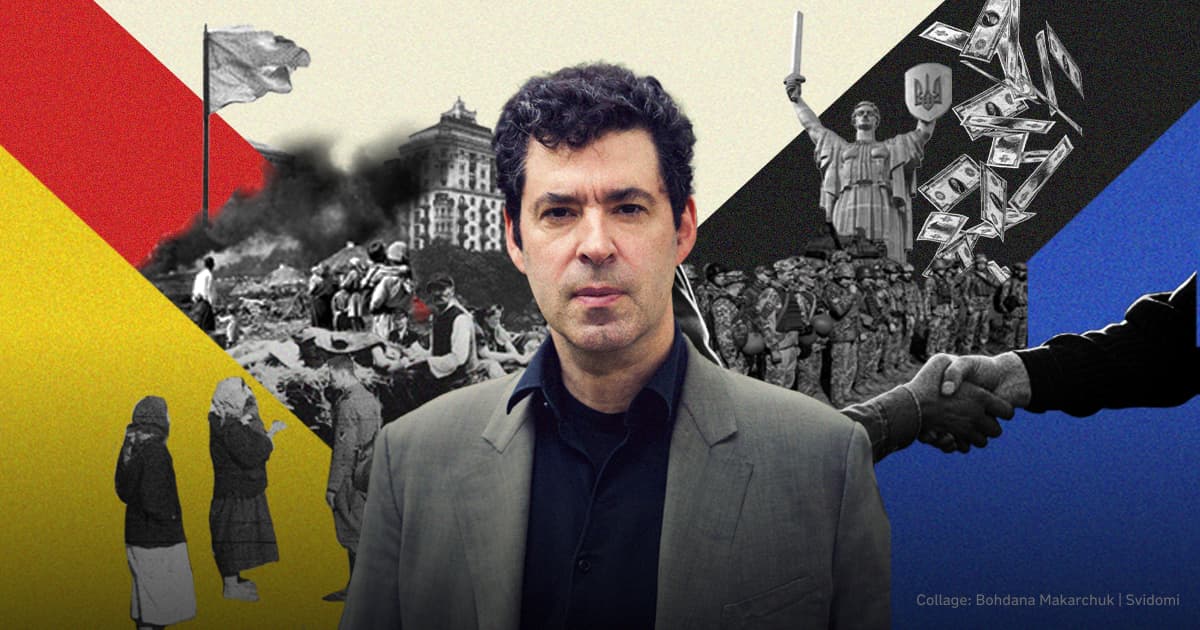
On May 19-21, the Kyiv School of Economics hosted a series of lectures on colonialism, nationalism and fascism by Jason Stanley, professor at Yale University and author of How Propaganda Works and How Fascism Works.
He writes on authoritarianism, propaganda, and other topics for the world's leading media, including The New York Times, The Washington Post, and The Guardian.
Svidomi spoke with Jason Stanley about the spread of fascism in Russia and other countries and his vision for Ukraine after the war.
In Ukraine, it is common to call Russia a fascist state. This is not the case abroad. Could you explain what processes make Russia not just an authoritarian state but a fascist one?
Vladimir Putin puts his political opponents in prison or executes them. Putin represents himself as the embodiment of the nation like Hitler represented himself as the embodiment of Germany, and Mussolini represented himself as the embodiment of Italy. It's a cult of the leader that people are happy with if he does well. That doesn't distinguish being a monarchy or Kingdom from fascism.
Fascism requires a sense of superiority. The superiority of "your" group over the "other" group. Your group has the right to dominate the countries and groups around you.
Fascism always attacks LGBTQ+ people. It (the regime — ed.) defends traditional gender roles. We see that in Russia very clearly.
There's a certain kind of attack on reality [in Russia]. There is no Democratic information space. Nobody knows what to believe. So they just believe the leader. The Press is attacked, and journalists are killed. Universities and schools are made into factories for spreading nationalism, repeating the doctrine and the ideology of the leader.
But fascism as a phenomenon does not appear without an appropriate basis. What exactly is this basis in the case of Russia?
Well, fascism relies on a mythic past. The idea was that in the past, the country was great, and then they were humiliated, and so they had to gain revenge for that humiliation. In the case of Russia, it's very clear. Putin goes back to the tsars (referring to Russian monarchs — ed.). He sees the Soviet Union as a Russian Empire that Mikhail Gorbachev lost. He believes that the West humiliated Russia by taking its colonies away. This is similar to what Adolf Hitler saw in the Treaty of Versailles (a treaty signed after World War I, according to which Germany was disarmed, lost a number of territories, and paid reparations to the countries that were part of the Entente bloc — ed.)
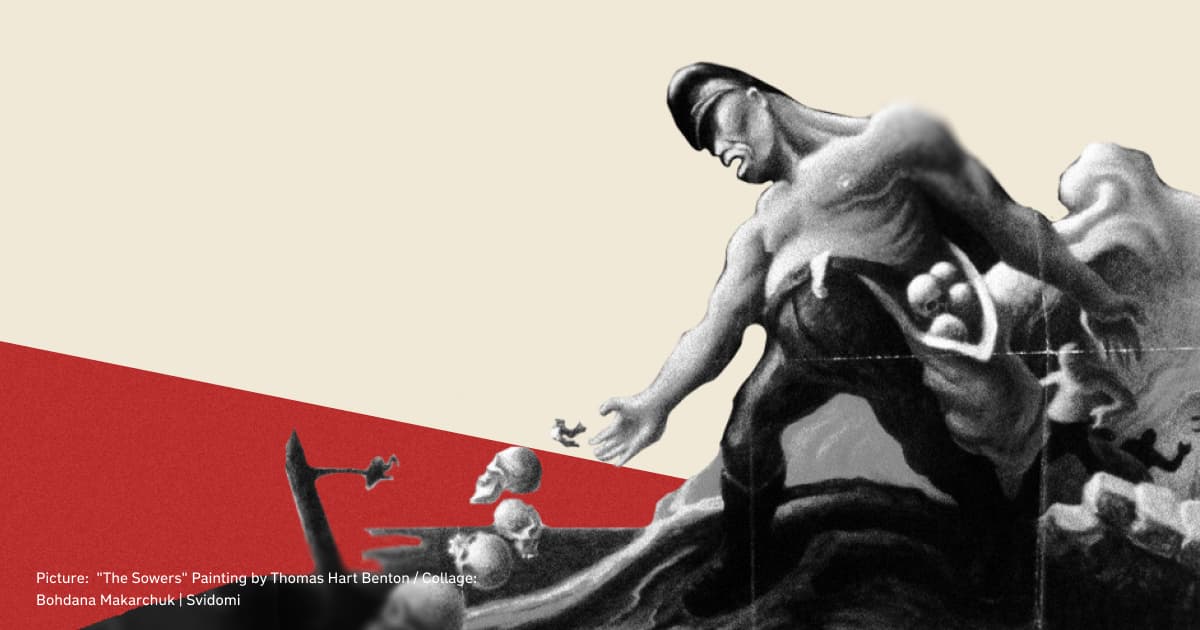
Earlier, you said that the myth about great Russian culture is a fake. They only know Tolstoy and Dostoyevsky, but contemporary Russia is not creating any new cultural products. How do you think we should explain to people in the West that Russia is a colonial power like any other? Can we trace this colonial narrative in the works of Dostoevsky and Tolstoy?
Pushkin, for example, has a great colonial narrative. Pushkin was a Russian colonist, despite being a black person.
I think that this narrative of great Russian culture dominates the Slavic Studies departments and Russian Studies departments. But if you go outside those departments, no one thinks of Russia as a place with a great [cultural] industry. Like I said, where is the Russian Tupac (Tupac Shakur, an American rapper considered one of the most influential and successful rappers of all time — ed.)? Everyone knows about the rap battle between Drake and Kendrick Lamar. Everyone knows about jazz and rock and rock'n'roll. But where is Russian music?
American culture is dominating the world. It seems to me that without freedom you can't have this kind of cultural production. Russia has a wonderful [composer Pyotr] Tchaikovsky. They had great filmmakers like [Andrei] Tarkovsky. But it's hard to create great art under decades of great oppression.
What other countries do you think are moving towards fascism?
India, when it comes to the genocide of Muslim Hindus. This is a classic structure of fascism in India. The Hindu nationalists openly will tell you they like the Nazis and that they should do to Muslim Hindus what the Nazis did to the Jews. Israel is moving that way towards a Jewish nationalism, towards a Jewish version of fascism.
The moral is everyone could be a fascist. What we learned from Russia is that you don't have to speak German to be a fascist.
What about Poland? The previous Polish government used religion and history to advance its political goals and part of society accepted it.
There is an important feature of fascism that we call “coordination,” which means taking the courts, putting pressure on schools and making sure everyone is loyal. We see that in Russia. The Law and Justice (PiS) party did the same with judges in Poland (in 2019, the then-ruling Law and Justice party carried out a judicial reform in the country that the European Commission recognized as contrary to EU law. The EU claimed that the provisions of the reform were incompatible with guarantees of access to an independent and impartial court — ed.) PiS also attacked the free press, using Hungary's methods. They lost the last election, but they are still very powerful.
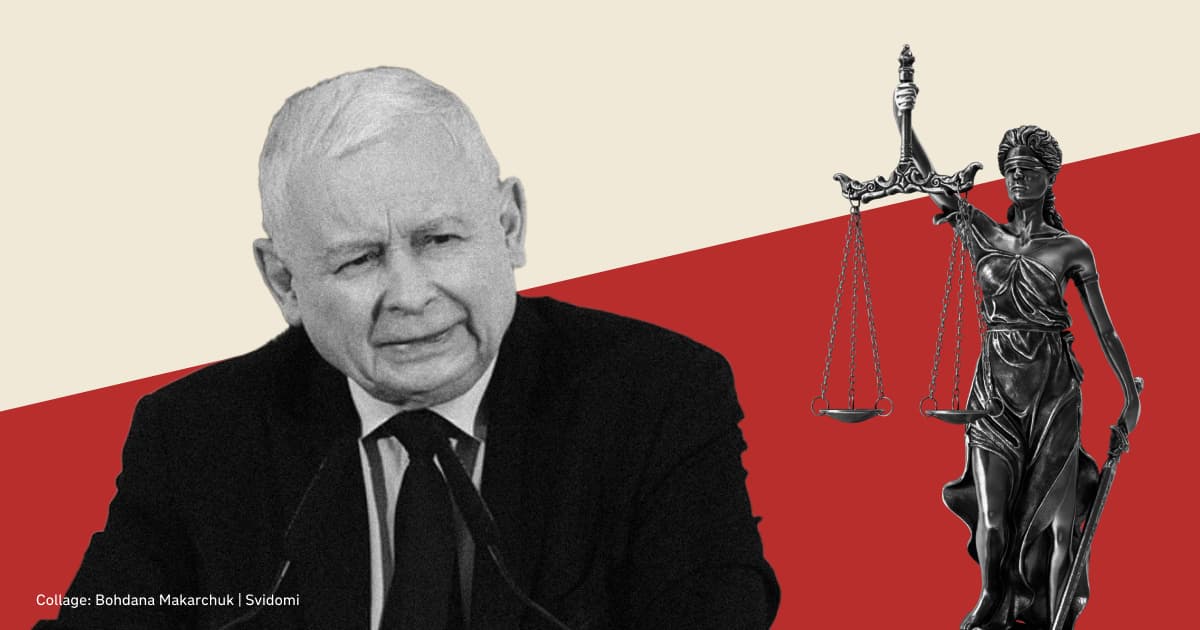
There is a difference between the old right and the new right. The old right is social conservatives, authoritarians who essentially want to impose their religion on everyone. German fascism was not religious, but Romanian or Brazilian fascism was. I believe that there are religious forms of fascism, and what we saw in Poland was exactly that. But at the same time, Poland has enough democratic institutions to fight it off.
What processes distinguish Ukraine from those in Russia?
You, Ukrainians, don't like politicians. So you want to replace them. You don't want to have the same politician running your country forever. Nobody [in Ukraine] wants that. Democracy is replacing your leaders. Whereas in Russia, they really want Putin to last forever.
Because Putin didn't create Russians, Russians created Putin
This is a very fashionable point in Ukraine that “the Russians are to blame for everything,” “It's not Putin, it's the Russians. They have always been like that.” So yes, I'm aware, and yes, there's a long colonialist history in Russia. You can't have Putin without Russians wanting.
The Ukrainian author Oleksii Radynsky is very good on this. Speaking about the war in Ukraine, he said: “Russian Putin knows that inside every Russian is a Ukrainian.” This is the opposite of the notion that every Ukrainian is a Russian and every Russian is a Ukrainian.
Russia has a long history of authoritarianism. Ukraine does too, but Ukrainians don't like it.
How do you see post-war Ukraine?
Ukraine will have to deal with corruption. Wartime is bad for corruption, but Ukraine has a big corruption problem, which is like a cancer. It destroys the country from within, allows politicians to be corrupt, and allows people to run against politicians, saying they are corrupt. That's what Donald Trump did. He said Hillary Clinton was corrupt. She was, but this is a system in which the Clinton family is worth $120 million.
No politician should gain that much money, but Trump is more cruel, much more. So how was he able to say that Hillary Clinton was the corrupt one? However, this is exactly what happens when there is corruption in a country. You can have a candidate running against corruption in a fake way. So Ukraine has to deal with corruption.
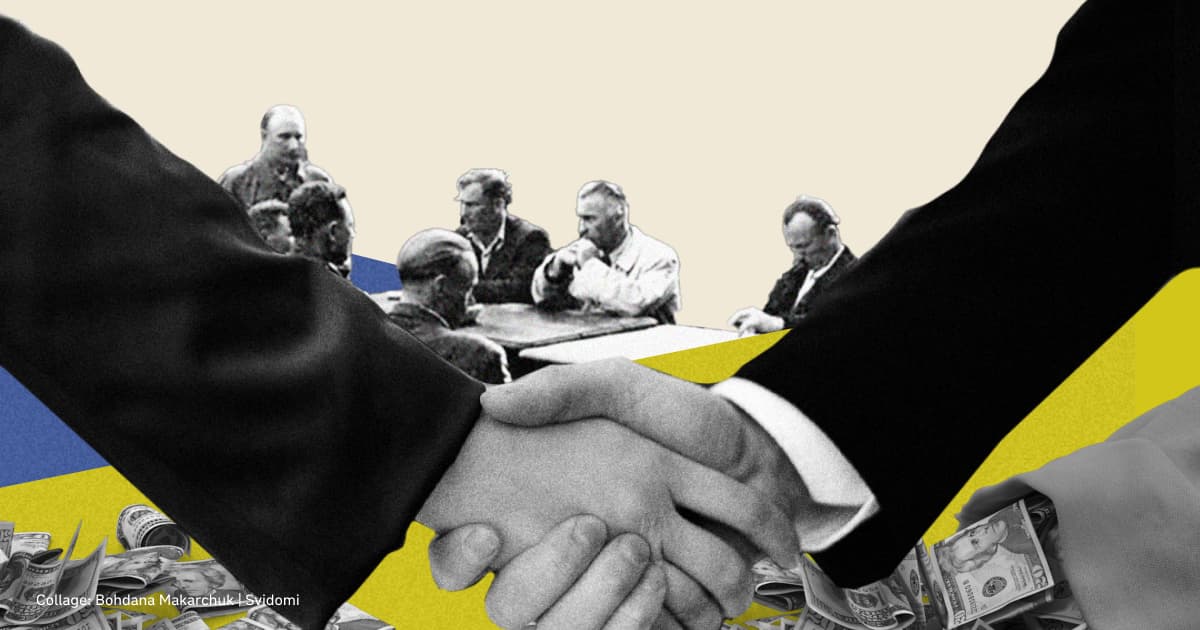
Another point is that Ukraine will have to face its past. It has to recognize the fact that Ukrainian nationalists worked for Nazis and that many Jews were killed on the territory of Ukraine (the mass shooting of Jews in Babyn Yar — ed.), the murder of Poles on the territory of Ukraine (the Volyn tragedy — ed.).
In the notes to our previous conversation, we published an explanation about Ukrainians in the German army and why Ukrainian nationalists eventually had to fight on two fronts: against the USSR and Germany.
History and culture overlaps should be emphasized in the future; Crimean Tatars need to be talked about as part of Ukraine, [and] the Jewish history of Ukraine should be discussed because Ukraine is one of the two most Jewish countries in the world. Talk about the violence between Ukrainians and Poles. All of this needs to be discussed, and everybody needs to be aware of it, or else you can't move forward. Or else you might start to think that you are wonderful and innocent, and that leads to fascism.
What do you think about the spread of nationalism in Ukraine? Are we talking about aggressive or protective nationalism now?
I think it's the kind of nationalism where people see that their history is connected and they are part of a big community that should take care of each other. Part of their national identity is democracy. For a very long time, part of the American national identity was democracy, and now Trump is attacking that.
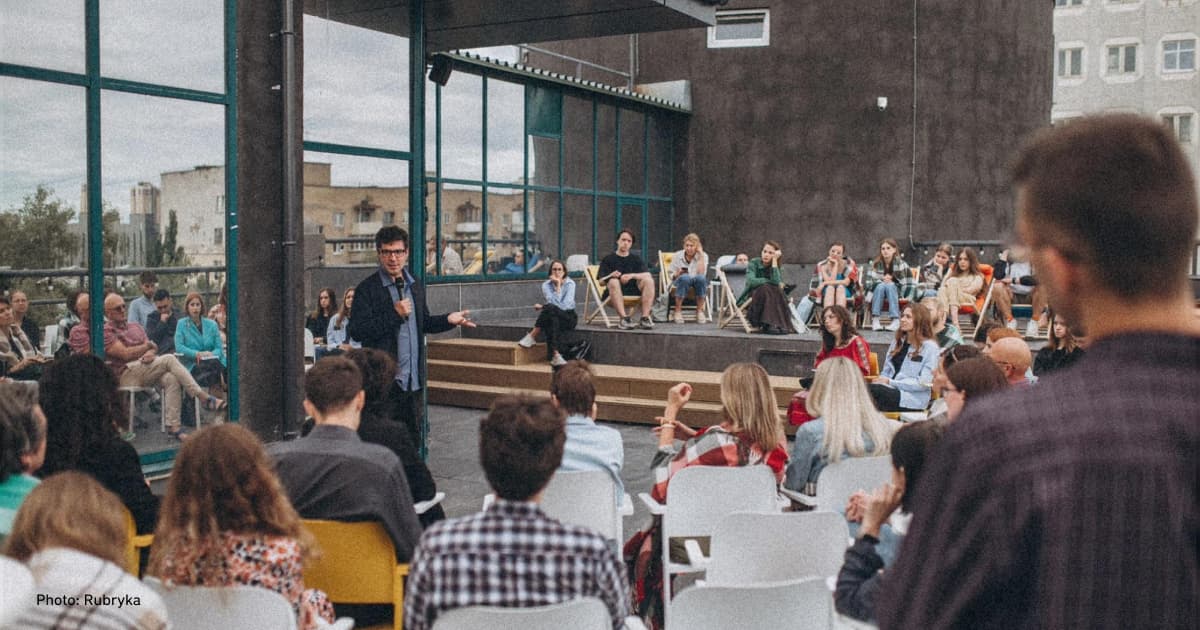
Ukrainians are lucky in a tragic way that you have an example of Russia next to you. So you have an example of what not to be. It is like Canada has the example of the United States. That is why Canada will always have a sufficient number of medical professionals because they have an example of a medical disaster in the United States. You also see an example of a disaster that is next to you (referring to the spread of fascism in Russia — ed.). So that's gonna make you associate your identity as Ukrainians with democracy, with replacing politicians. I don't like the concept of “protective” because it doesn't imply democracy.
I think healthy nationalism should be democratic.
Earlier, you said that you would like Ukrainians to know more about colonialism in Africa. In your opinion, how correct is it to build interstate relations between Ukraine and African countries on this experience of colonialism? Would people in Africa want to hear about it?
There is a tension between saying that we really value the West and saying that we suffer from colonialism. The West is most associated with colonialism. I think you have to say that Ukraine is not the West and that Ukraine has been subjected to colonialism as a democracy trying to fight for self-determination.
These concepts resonate in the global South. They are anti-colonial concepts. Europe (Jason Stanley is referring to the thesis “Ukraine is Europe”—ed.) is not an anti-colonial concept. That's a colonial concept.


